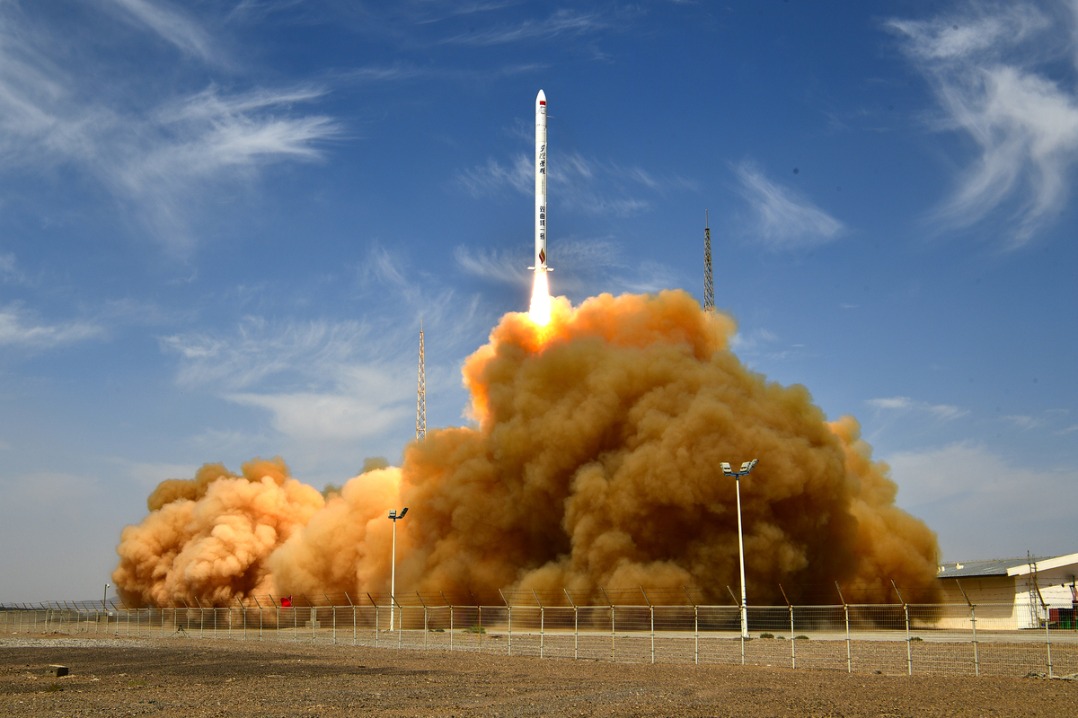Kenya eases burial rules amid crisis

Kenya has eased the strict rules governing funerals of victims of the coronavirus, seeking to reduce the emotional burden on families that have also had to contend with stigma surrounding COVID-19.
Kenya's director of health, Francis Kuria, said the Health Ministry on Tuesday had scaled down the protocols after research indicated that the virus can't be transmitted from corpses.
"We have finalized the revised protocols that are going to guide us while conducting burials moving forward," Kuria said.
The guidelines minimize the involvement of the ministry in burial ceremonies, allowing families to give their loved ones a decent send-off.
They focus on ensuring that mourners don't come into contact with bodily fluids of the deceased, in addition to requiring them to follow other safety measures such as social distancing.
The previous guidelines, issued immediately after coronavirus cases were reported in the country, required that public officials oversee burials within two days of death to avoid community practices that would result in more infections through contact.
A body bag was wiped with 0.5 percent sodium hypochlorite, a disinfectant, and the casket was handled using a personal protective equipment at all times. Open viewings of the body were not allowed.
Large gatherings at funerals were banned, limiting the number of mourners to 15.
Strict procedures
Many Kenyans complained about the strict procedures, with some saying it left the affected families stigmatized. They also said that so-called body management by the ministry ran contrary to guidelines issued by the World Health Organization.
According to the UN health agency, corpses are generally not infectious, except in cases of cholera and hemorrhagic fevers such as Ebola and Marburg.
The WHO said that only the lungs of those who died of pandemic influenza, if handled improperly during an autopsy, can be infectious. Otherwise, cadavers do not transmit disease.
In the March 24 guidelines on the management of a body in the context of the coronavirus, the WHO directed that the dignity of the dead, their cultural and religious traditions, and their families should be respected and protected throughout.
The agency said that hasty disposal of the dead should be avoided and that authorities should manage each situation on a case-by-case basis, balancing the rights of the family, the need to investigate the cause of death, and the risks of exposure to infection.
"I remember in tears, the burial procedure of my uncle who succumbed to coronavirus. Despite being a rich man, he was buried like a poor person," said George, a Kenyan man who declined to give his full name.
"The ceremony took less than an hour and the gate was locked immediately the team from the ministry obligated with the role of handling the body got inside."
George said his tribe has a custom of holding elaborate burial ceremonies. While he welcomes the health ministry's announcement, George said the stigmatizing experience of his uncle's burial will remain etched in his mind.
Today's Top News
- China and US agree to extend tariff rates after two-day talks in Stockholm
- US, China trade talks candid, in-depth, constructive, says China intl trade representative
- China unveils delegation for Chengdu World Games
- Xi urges youths to champion vision of peace
- All-out relief efforts underway in flood-hit regions
- Crucial to foster stable China-ROK ties: China Daily editorial






























